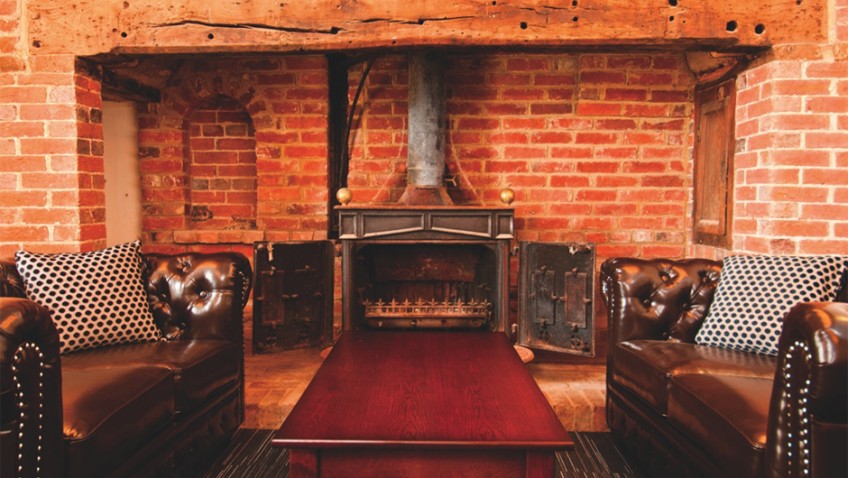A friend was talking on the phone the other day about her son, and a trip he’d made to the north of England. ‘Did he stay in youth hostels?’ I enquired politely. ‘Oh, goodness, no’, she replied. ‘He’s in his forties now. He’s well past that stage.’ I fell silent, because I’m about twenty years older than her son and spent a couple of nights in a youth hostel only last week.
Some readers may be surprised to know that youth hostels are actually still very popular with us oldies. Although the Youth Hostels Association’s primary purpose is to enable young people ‘of limited means’, to explore the countryside, there is no upper age limit for membership, nor has there ever been. The Scottish Youth Hostels Association even encourages older people to use hostels by offering a reduction in the cost of membership to the over 60s. I guess the habit of using hostels became established when we were young, and we never saw any reason to give it up.
Origins
The Youth Hostel movement originated in the early twentieth century in Germany, but it took 20 years for the idea to cross the channel to Britain, with the first hostel opening in 1930 in North Wales. That first hostel closed after less than one year due to a problem with the water supply. It was claimed that a local farmer was contaminating the water in the local brook with sewage. (Was it sabotage? I have often wondered.) It was an inauspicious start, but the movement swiftly gathered momentum, so that by the end of 1931 there was a total of 75 hostels in England and Wales. Membership was five shillings a year, while the cost of an overnight bed was just one shilling (or 5p in today’s money). Life membership could be purchased for three guineas. The Association continued to grow until its peak in 1950 when the number of hostels was over 300.
The accommodation was basic – metal framed bunk beds in single sex dormitories – and the facilities minimal. My first experience of hostelling was as a teenager with a school friend. We hitch-hiked to Brighton and booked into the hostel in Patcham. It looked to me like a prison camp. Neither of us had a clue about cooking, but we managed to cobble together something resembling a meal, the main ingredient of which was instant mashed potato. I remember feeling thoroughly miserable. What surprises me now is that I ever went back.
In those days, you had to supply your own sheet sleeping bag, and you were expected to make up your bed immediately on arrival. In fact, the whole enterprise was rule-driven: no alcohol to be consumed on the premises; in by 10 o’clock and lights out at 11. In the morning, before leaving, the warden gave you a domestic task – called a ‘duty’ – to perform. It was also required that you arrive at the hostel under your own steam: ‘on foot, by bicycle, or canoe’ (yes: canoe). Motorists and motorcyclists were banned.
The good old days
It may sound grim, but the thing is that when you get a group of veteran hostellers together it isn’t long before they start harking back to the good old days. For some reason people just love talking about outside toilets, horsehair mattresses and inefficient coal fires. There is always at least one among the group who will declare, with barely concealed smugness, that he has life membership. He will remember exactly how much it cost him (£5.00 in the 1960s) and he will have estimated how much money he has saved over the years as the annual cost of membership has gradually risen in line with inflation. There will also be someone with a story about how he got one up on the warden by arriving by car, parking it out of sight, round the corner from the hostel, and from where he changed into muddy boots in order to give the impression that he had emerged fresh from the hills. It was all jolly japes, and if spirits looked like dipping then someone in the common room would organise a sing-song. There was even a YHA Songbook, full of cheery campfire songs to reinforce the spirit of comradeship.
All mod cons
Nowadays you get proper sheets, centrally-heated rooms, TV and free Wi-Fi. Some hostels are even licensed to sell alcohol. But some vestige of the old-style hostels remains, with shelves of well-thumbed books (James Herriott’s novels are a firm favourite), old copies of The Dalesman and National Geographic, and board games. And although the furnishings are updated, they are still strictly utilitarian. Everything – from tabletops to sofas – seems to be made of plastic, with a wipe-clean surface.
In spite of the nostalgic reminiscing, don’t be fooled: we all really love today’s mod cons, especially the en-suite, private rooms. But there is one aspect that is even more welcome: the ‘wardens’ have been replaced by ‘managers’. Hostel wardens could be fiercely authoritarian, some legendarily so. The general feeling was that you should be grateful to be granted admission. These days I can be quite taken aback by how friendly and helpful the staff are. Of course, hostels are now part of the hospitality and leisure industry, and are in competition with other providers of budget accommodation, the independent backpacker hostels on the one hand, and the Travelodges and Premier Inns on the other. But for those of us whose experience of independent travel started with the YHA, there is no competition. We remain loyal to that grassroots organisation which gave us our first taste of freedom and adventure. Or perhaps some of us just haven’t grown up.




